

Development Goals
Development Focus, Goals, Objectives, And Strategies
Development Focus
To ensure that all people in the Yilo Krobo Municipal have access to basic social services (health care, quality education, potable water, good sanitation etc), job opportunities, information and opportunity to participate in taking decisions that affect their own lives
Development Goal
Overall Goal:
The overall goal is to improve the standard of living of the people in Yilo Krobo
Sub-Goals:
Priorities for Private Sector Development
1. Improve the revenue base of the Assembly
2. To increase income levels of people Human Resource Development
3. To increase literacy level in the municipality
6. To create opportunities for youth development
7. To reduce the incidence of diseases
6. To integrate the vulnerable and excluded into the society
Good Governance and Civic Responsibility
8. To improve Governance
Objectives
Priorities for Private Sector Development
- Increase internally generated revenue by 20% by 2009
- Increase external sources of revenue from ¢1.8b to ¢11.1b by 2009
- Increase agricultural production by 5% by 2009
- Increase activities in the industrial sector
- Increased access to market for agricultural and industrial products
- Improve infrastructure facilities at 2 major tourist attraction centres in the district by 2009
- Reduce the rate of unemployment by 40% by 2009
- Reduce access to environmentally unfriendly source of energy for cooking by 15% by 2009
Human Resource Development
- Increase enrolment and participation in basic schools by 5% by 2009
- Increase SSS participation rate by 6% by 2009
- Improve the performance of school children by 10% by 2009
- Increase opportunities for youth development in the district by 2009
- Improve sporting facilities in 20 basic schools by 2009
- Increase access to quality health care services
- Increase access to safe solid waste management by 10% by 2009
- Increase access to household latrine by 3.2% by 2009
- Increase household access to potable water in by 20% by 2009
- To develop systems that enforce rights and protection of especially street children, women, physically challenged etc
- To increase support for the vulnerable and excluded
Good Governance and Civic Responsibility
- Increase access to official information by the public and the private sector
- To strengthen the capacity of the public institutions
- To reduce the rate of indiscipline in the municipality
Strategies
Priorities for Private Sector Development
- Conduct educational campaign on the need to pay tax
- Train Revenue Collectors through workshops and seminars
- Implement revaluation list
- Intensify supervision of revenue collection
- Identification of potential revenue sources
- Involve District Sub-structures in revenue mobilization
- Lobby extensively and intensively for NGO, Donor support and government grants
- Construction of 20 wells for irrigation
- Train farmers in the use of appropriate storage facilities, post harvest handling and proper harvesting methods.
- Provision of storage and small agro- processing facilities
- Provide incentives to extension service workers
- Promote environmentally sustainable cropping practices
- Control local animal diseases
- Conduct training in fish farming
- Provide credit facilities to farmers
- Conduct managerial and entrepreneurial training for small scale industrialist
- Create an information base to assist firms with information on new technologies, materials and production techniques
- Provide credit facilities to small scale entrepreneurs
- Encourage farmers and small scale industrialist to form co-operatives
- Disseminate market information to farmers and small-scale industrialists.
- Construct and maintain 160km feeder roads
- Organize agricultural and industrial fairs
- Rehabilitation of markets
- Provide Utility infrastructure (electricity, water, telephone facilities) at 2 major
Tourist attraction centres
- Construct Hotel and Restaurant facilities at Boti Falls
- Embark on reforestation exercise along ponpon river upstream
- Improve access road to Umbrella Rock and Krobo Mountains
- Provide skills development training to unemployed
- Create land banks
- Provide credit facilities to the unemployed
- Promote irrigated vegetable cultivation, cultivation of sugar cane and cassava, the rearing of glasscutter and rabbits, beekeeping and fish farming.
Human Resource Development
- Conduct public educational campaign on low enrolment especially in the rural areas
- Provide scholarship to needy children
- Provide teaching and learning materials to schools
- Institute sanctions for non-performing teachers
- Construct and rehabilitate school Infrastructure
- Provide accommodation for teachers
- Provide Incentives for teachers
- Intensify supervision in schools
- Provide support for timely and regular performance monitoring test
- Rotate and redeploy teachers to remote areas
- Provide sponsorship to teacher trainees
- Support the traditional apprenticeship system
- Promote entrepreneurship among the youth
- Provide youth development training for 500 youth
- Provision of basic sporting facilities and equipment to 20 basic schools
- Promote the establishment of keep-fit clubs
- Organize sporting competition for schools
- Provide support for people living with HIV/AIDS
- Construct HIVAIDS counseling and voluntary testing centres
- Promote the establishment of Community Based Insurance Schemes
- Construct a hospital and clinics
- Facilitate the recruitment of health personnel
- Train women in local food weaning production
- Conduct public education on malaria control
- Intensify campaign on immunization programmes
- Train 100 traditional birth attendants
- Strengthen Response Initiative and AIDS Committee
- Conduct peer counseling, school health education and moral education programmes
- Distribute and promote the use of female and male condoms through CBOs, extension service workers, community health nurses, unit committee, etc.
- Conduct educational campaign on safe sanitation practices
- Promote and support the construction of 600 household toilets
- Construct 3 public toilets and 20 institutional latrines
- Convert 4 public pan latrines into cesspit tank latrine in collaboration with private sector
- Provide and place 70 refuse containers at designated points
- Embark on house to house refuse collection at selected areas in Somanya
- Enact sanitation bye-laws to ensure proper management of household level liquid waste
- Enforce laws on the provision of sanitation facilities and other infrastructure by developers
- Construct 60 boreholes
- Rehabilitate30 hand dug wells
- Rehabilitate Somanya Pipe system
- Co-ordinate the activities of all water providers
- Sensitize communities to participate in the provision and maintenance of potable water facilities
- Provide support to the Department of Social Welfare to implement its advocacy programmes against child labour, battery, rape, defilement and child neglect
- Provide credit support to the Physically Challenged and women to enable them undertake income generation activities
- Provide alternative education for out of school Children
Monitoring And Evaluation
Monitoring and Evaluation Plan
All planning efforts should be result-oriented, and must be aimed at improving the well being of the population. Monitoring and Evaluation is a means through which the success of plans are ensured and measured.
The monitoring plan provides a framework for management to obtain relevant information that can be used to access progress of implementation of each of the projects and to take timely decisions to ensure that progress is maintained according to schedule.
The evaluation plan on the other hand would enable management to determine most especially, whether the expected impacts of implemented programmes and projects are being achieved.
The overall responsibility of monitoring and evaluation of programmes and projects in the 4-Year Medium Term Development Plan lies with the Municipal Planning and Co-ordination Unit (MPCU). Various units and departments have been assigned specific monitoring and evaluation responsibilities; the MPCU must coordinate all these responsibilities.
It is expected that the National Development Planning Commission (NDPC) and the Regional Planning and Co-ordinating Unit (RPCU) would carry out general overview of all monitoring and evaluation activities in the Municipality.
Date Created : 11/28/2017 1:23:13 AM

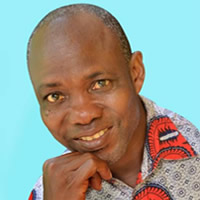

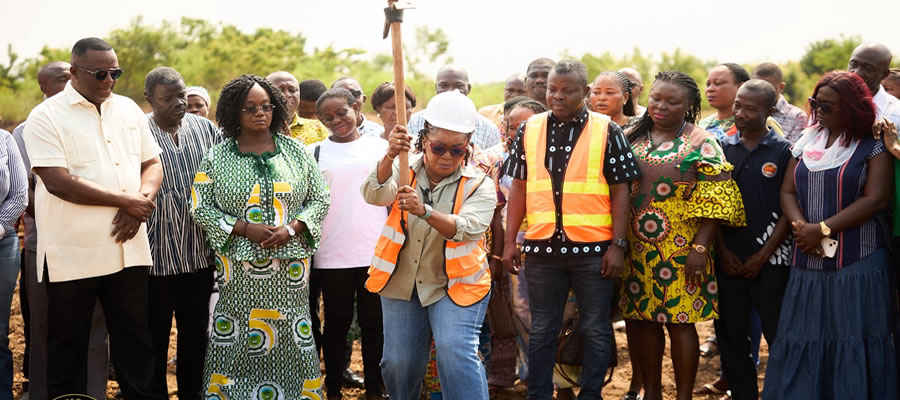
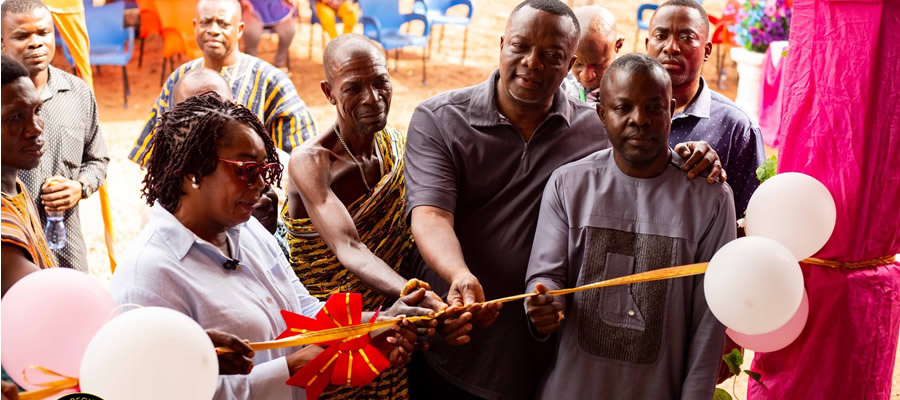
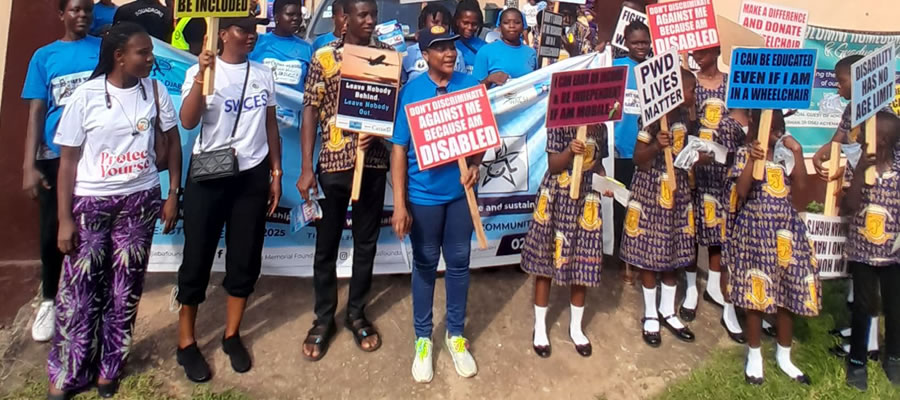
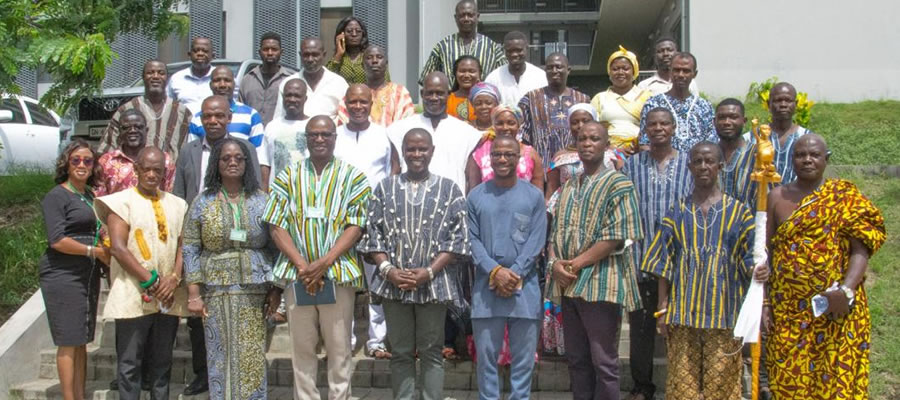



 facebook
facebook
 X
X
 Youtube
Youtube
 instagram
instagram
 +233 593 831 280
+233 593 831 280 0800 430 430
0800 430 430 GPS: GE-231-4383
GPS: GE-231-4383 info@ghanadistricts.com
info@ghanadistricts.com Box GP1044, Accra, Ghana
Box GP1044, Accra, Ghana